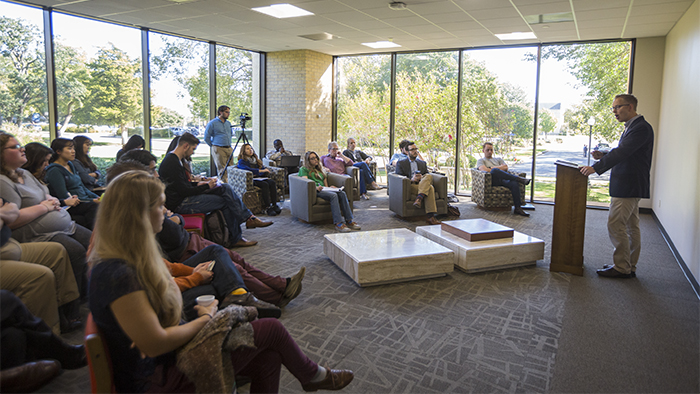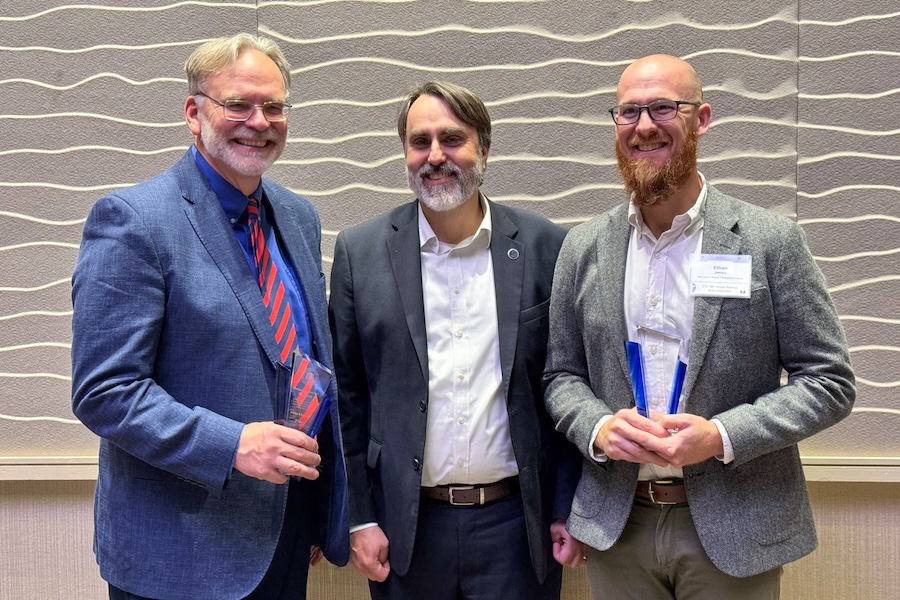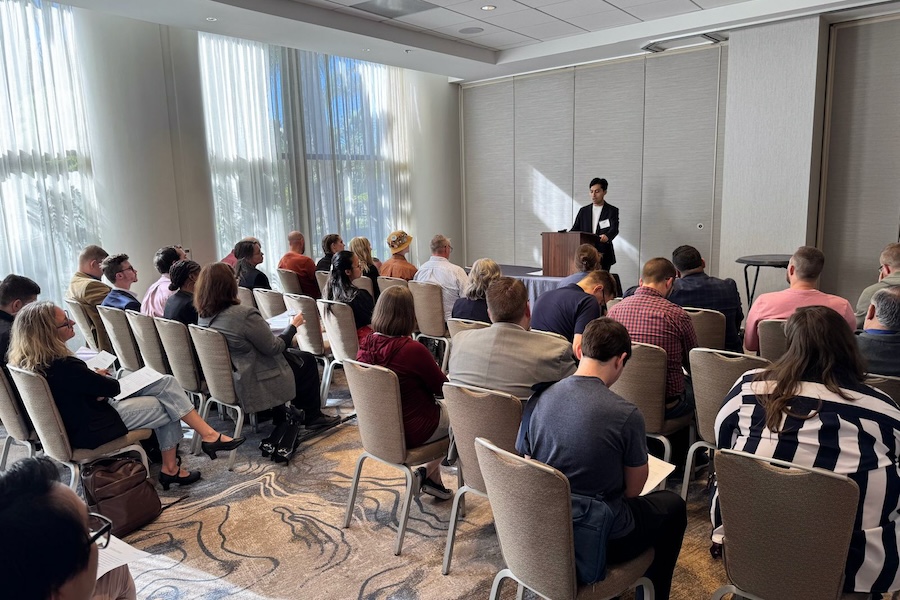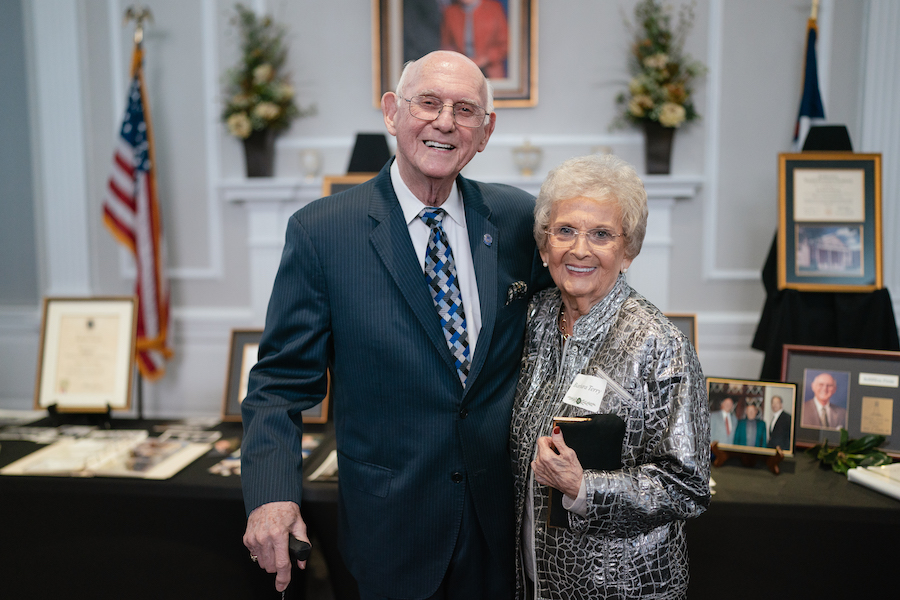Music professor discusses role of liturgy in making disciples

During an Elliot Coffee Talk in Southwestern’s Roberts Library, Oct. 21, Assistant Professor of Church Music Scott Aniol presented and discussed his paper entitled, “Practice Makes Perfect: How Corporate Worship Forms Disciples.” During his talk, Aniol shared with attendees how liturgies, or forms of worship, within the context of community can shape moral virtue and be a means of disciple-making.
“Christian disciples are a new people of God whose behavior should emerge from and reflect their biblical values and beliefs,” Aniol said. Even for Christians who are “new creatures,” holy behavior is not an automatic instinct. Because people are driven by “the inclinations of their hearts,” Aniol said, holy behavior is learned and must be taught and formed by leaders within the context of a local church.
Aniol then explained that a common misconception is that there is no connection between corporate gatherings and the task of forming disciples. Because of this, Aniol discussed how local churches can accomplish this mission.
He argued that although proclaiming the Gospel is an important and imperative first step, leaders must “teach and nurture” new believers. “True conversion is not assent to certain facts,” Aniol said. “True conversion is a life-changing entrance into communion with God.”
This process of disciple-making, he continued, is more than conveying doctrine. To know and understand one’s beliefs is important for informing behavior but is not in itself enough for discipleship. Reiterating the tendency for people to act upon their inclinations, Aniol said “leaders must give attention to the cultivation of noble inclinations, noble affections for what is true and good.”
Because discipleship occurs in the context of community, Aniol then introduced the role corporate worship plays in “cultivating such behavior,” specifically through the local church’s liturgies. These liturgies, he said, help to counteract worldly liturgies, which can easily influence the individual and even the church itself.
He further characterized liturgies as communal behaviors performed as rituals. The repetition of these rituals, though often perceived to ultimately be empty, insincere, or “going through the motions,” is not meaningless or insincere, Aniol argued, but depends on the intention of the one performing the action. In fact, he added, repetition can be important for the formation of moral behavior.
Where this repetition takes place, Aniol said, the work of the Holy Spirit is also important. “Without the Holy Spirit, liturgy becomes dry, mundane and enslaving,” he said. “But with the Holy Spirit’s active participation, liturgy becomes God’s tool for spiritual formation.”
The primary influence pastors have to introduce liturgy, or to “practice,” is through the church’s weekly services. These corporate liturgies, Aniol argued, will inform and shape the habits of members of their congregation beyond those gatherings.
“Scripture-shaped Gospel liturgies will inform people’s liturgies of life, making them into worshippers the other six days of the week,” Aniol said. “Liturgies will make them into those who recognize what they are in the Gospel, which will then, in turn, form them into mature disciples of Jesus Christ.”



